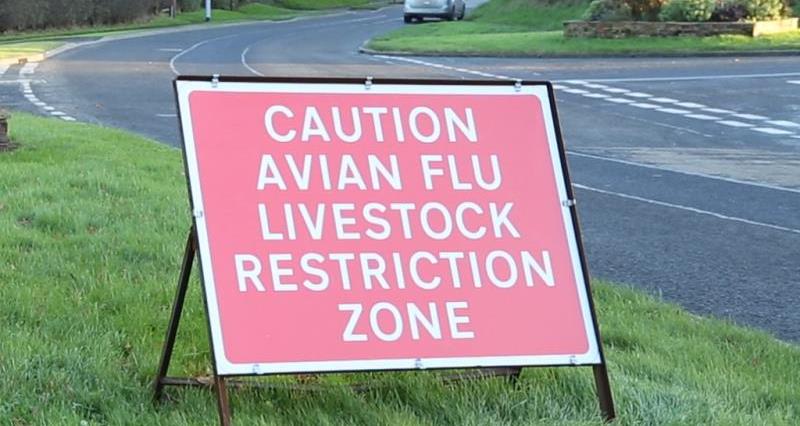During one week in January alone, a total of 10 tonnes of illegal meat were removed from the UK’s food chain.
In the same month, Germany reported an outbreak of FMD (foot and mouth disease) and there have now been several more confirmed cases in Hungary and Slovakia. This comes when UK farm businesses are already under huge pressure from rising cases of avian influenza and bluetongue.
With the risk of animal and plant disease high, the NFU is asking for a clear plan and investment now to prevent potentially crippling costs down the line, and to protect domestic food production at a time when food security is so important.
New threats emerging all the time
NFU President Tom Bradshaw said outbreaks of “plant or animal disease pose a significant risk to the UK’s food security which this government has repeatedly stated is critical to national security, especially when coupled with increasing global instability and the impact that can have on the UK’s food supply”.
Tom said disease outbreaks threatened not only the national economy, but also the UK's ability to trade, citing £6 billion worth of animal and plant products exported in 2024 which relied on the UK's biological security reputation.
He added: “As an island nation we have a natural advantage, but this means nothing without fit for purpose import controls which address the needs and concerns of different sectors.
“This government has repeatedly said that food security is national security, and we can’t have food security without biosecurity.”
NFU President Tom Bradshaw
“The recent outbreaks of foot and mouth disease – a disease which still haunts the memories of so many in our sector – across Europe are hugely worrying for British farmers, and we must do everything to prevent it crossing the Channel.
“And FMD is not the only risk. New breakouts of african swine fever and known plant diseases like Xylella and tomato brown rugose fruit virus continue to be reported across Europe.
“The risks are high and new threats are emerging all the time.”
According to the government’s 2025 National Risk Register, FMD and ASF (african swine fever) are two of the biggest threats to biosecurity, mostly due to illegal meat imports.
The National Audit Office estimated the cost of the devastating 2001 FMD outbreak to be over £8 billion, while the government estimates an ASF outbreak could cost up to £100 million.
No food security without biosecurity
Tom referenced the last outbreak of FMD during 2001 and 2007, adding that it brought the country to a “standstill”.
“This government has repeatedly said that food security is national security, and we can’t have food security without biosecurity.
“In the current economic environment, and with the pressure avian influenza and bluetongue are already putting on the farming sector and government resources, it’s clear that the government cannot afford another disease outbreak.”
He said livestock businesses are worried current import controls don't match the scale of threat to the nation's biosecurity and food safety, while fruit, vegetable and ornamental businesses importing young plants and plant material are concerned that inspections at border control points increase the biosecurity risk and cause long delays, adding significant costs and jeopardising production.
There is nervousness in the horticulture sector that inspections at border control points could lead to cross contamination. As well as this, under the current model, some businesses have seen long delays of up to six weeks which is disastrous to supply chains.
Destroying public confidence
Tom added: “In a more uncertain world, we require decisive action to secure Britain’s future, and the government is right when it says that its job is not to step back, but step up. It did just that when it injected a much needed £200 million into the biosecurity centre in Weybridge.
“We now need to see a more comprehensive biosecurity plan, established across government including Defra, the Department for Business and Trade and the Home Office, and with the necessary investment behind it to minimise the risks to British farming and the food we produce as much as possible.”
The Rt Hon. the Lord Rooker, who also previously chaired the Food Standards Agency, said: “Food is the UK’s biggest manufacturing sector and if one part of the sector is damaged by a disease outbreak, it can destroy the public’s confidence in the rest of it.
“It’s relevant to note that it’s 25 years since the conception of the Food Standards Agency, which was created to rectify the disastrous collapse of food confidence following the BSE outbreak. The FSA restored people’s confidence in food and that must be maintained at all costs.
“It should be central government which drives biosecurity forward, it’s not just up to Defra. But I’m not sure the awareness of the potential impacts is there.
“This government has a habit of ignoring countryside issues, but this is not a countryside issue, it’s an economic one. If our food manufacturing sector is damaged, then the effect on the rest of the economy is enormous.
“It must be taken seriously. If not, we’re in real trouble.”
Key asks
In order to counter the biosecurity risks identified in the government’s own National Risk Register, a cross-government biosecurity plan is needed alongside adequate investment. This should cover animal and plant disease threats such as FMD, Xylella, african swine fever, bluetongue and avian influenza. It should also include sufficient investment for:
- Adequate import controls for plant production material.
- Sufficient veterinary capacity in the APHA (Animal and Plant Health Agency) to prevent and control diseases.
- Covering the cost of veterinary surveillance visits, through a central fund, to bring equivalence with the delivery of APHA services.
- A Vaccine Fund to cover emergency vaccination costs given the priority given to exotic notifiable diseases.
- A £1.5 million Virus Yellows Resilience Fund.
- A fully funded Bovine TB strategy including £15 million for cattle vaccination development and £40 million by 2028 for deployment.






